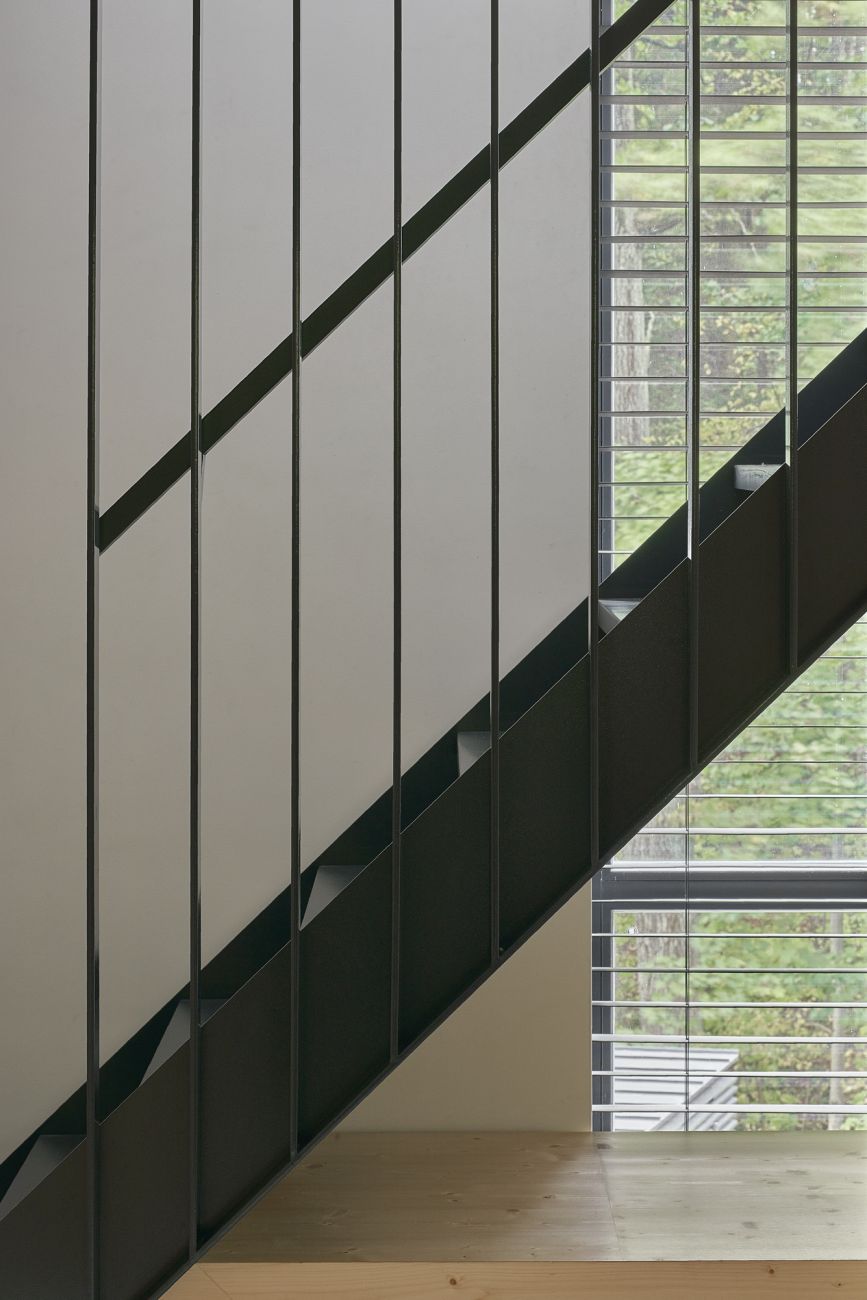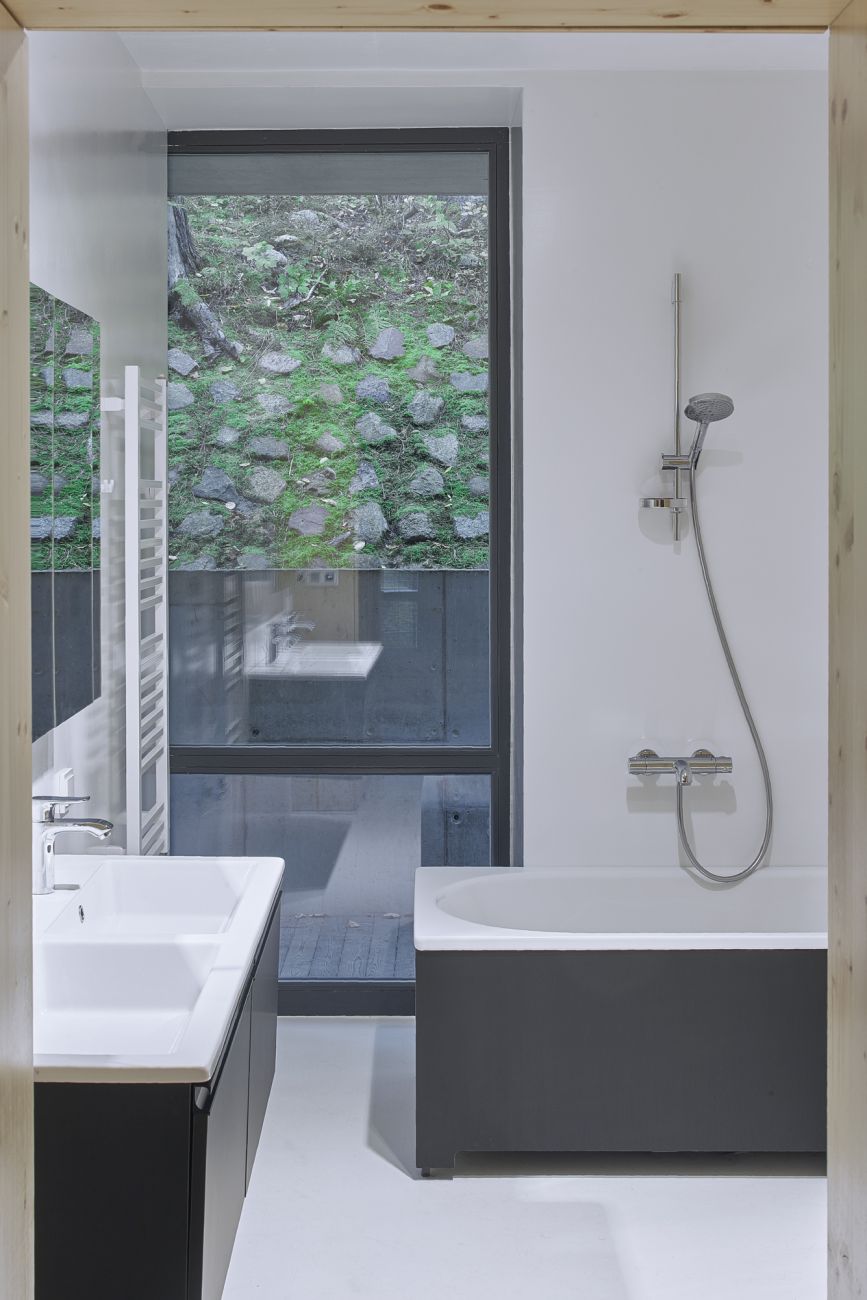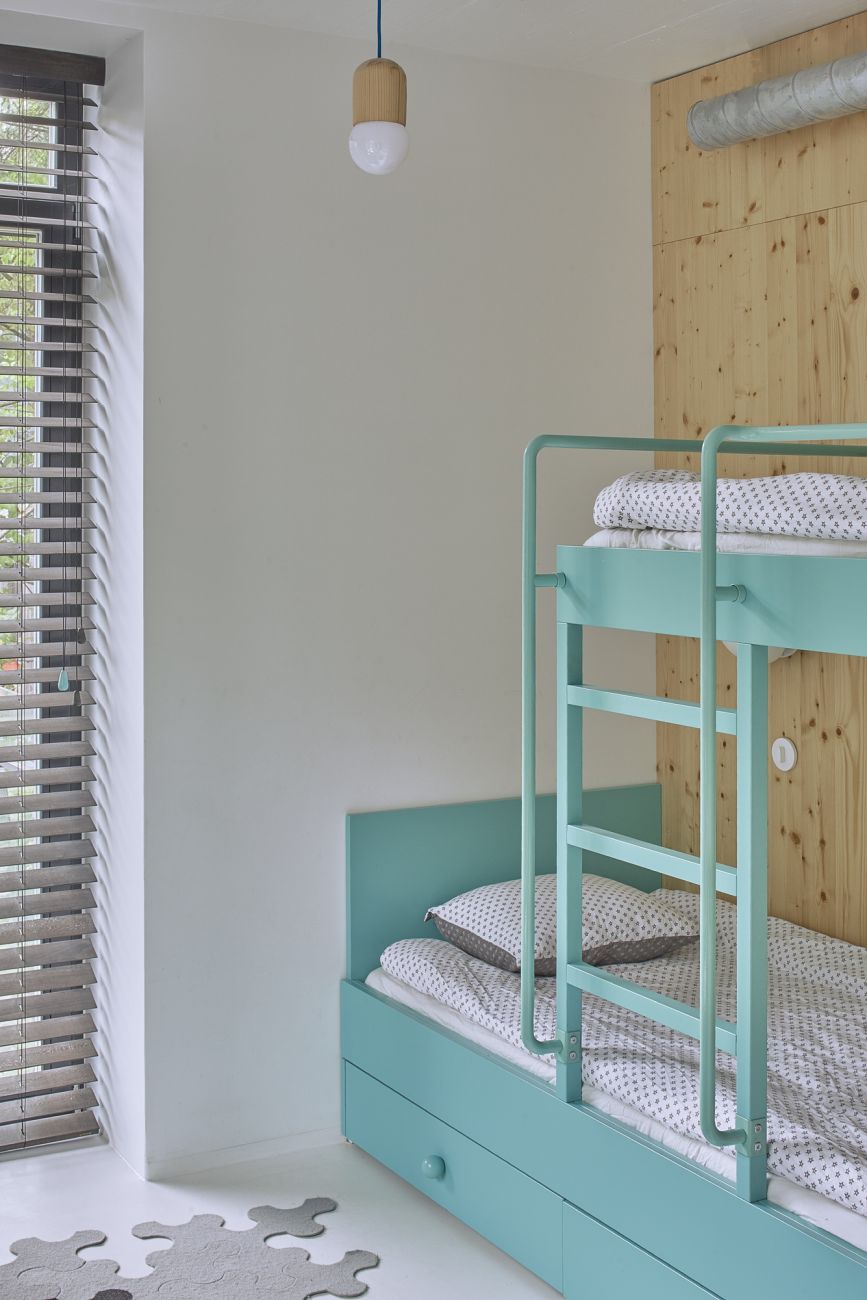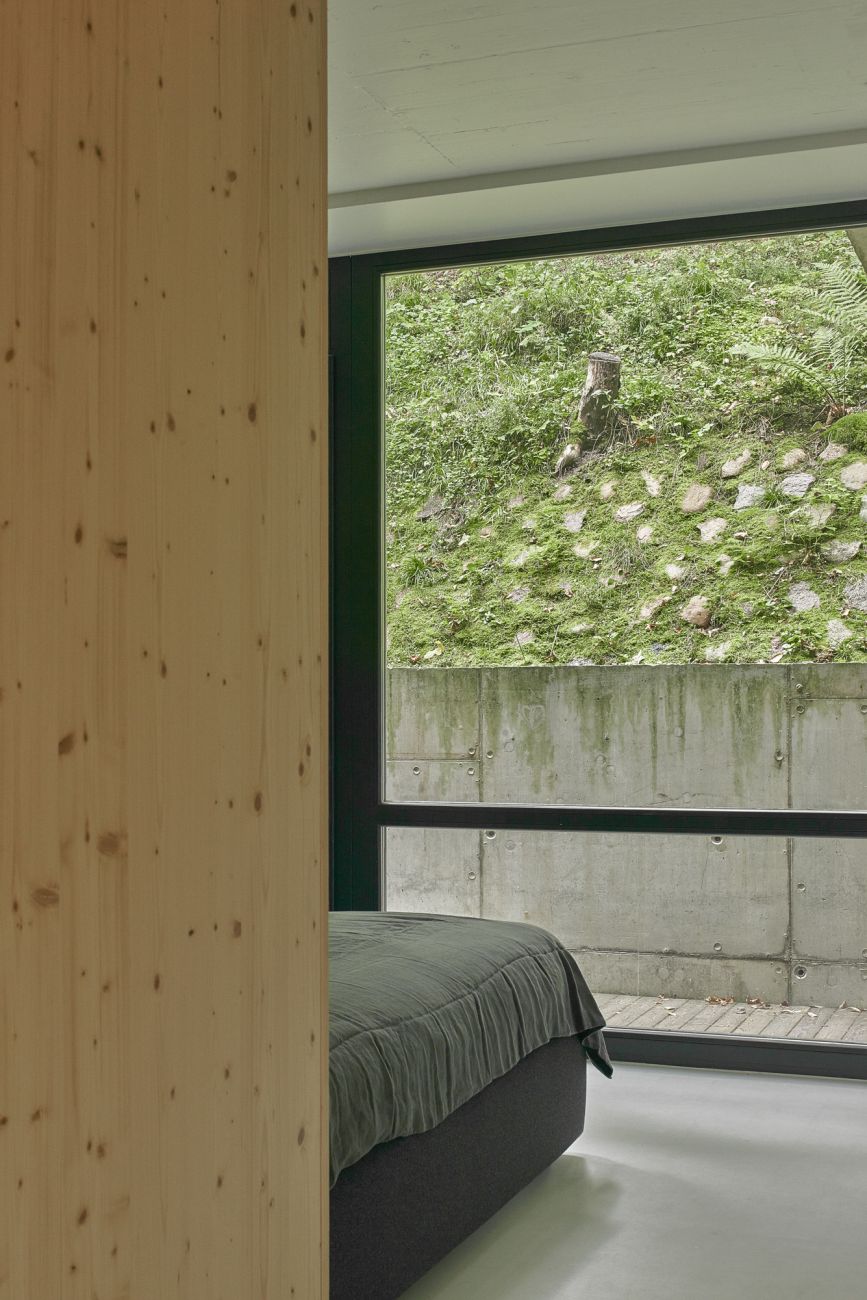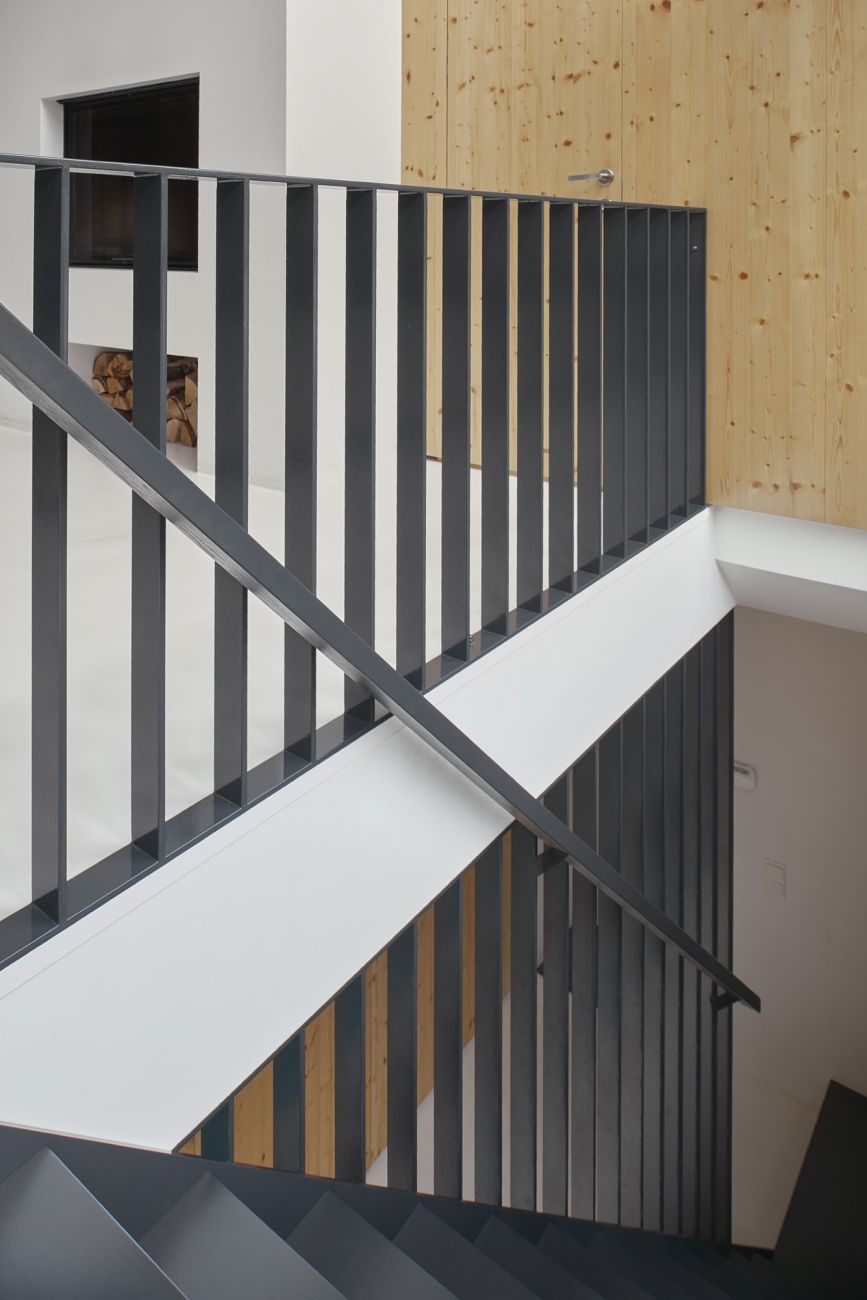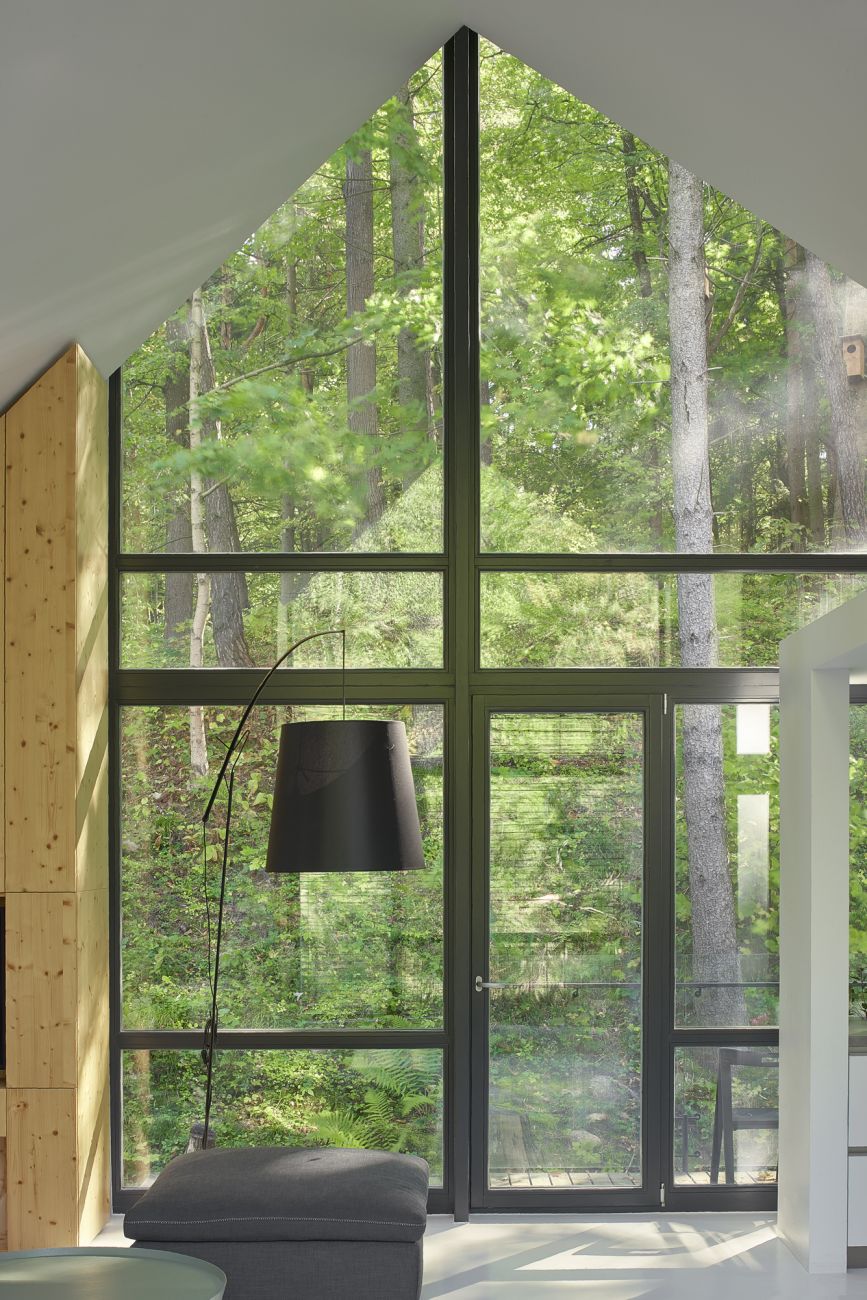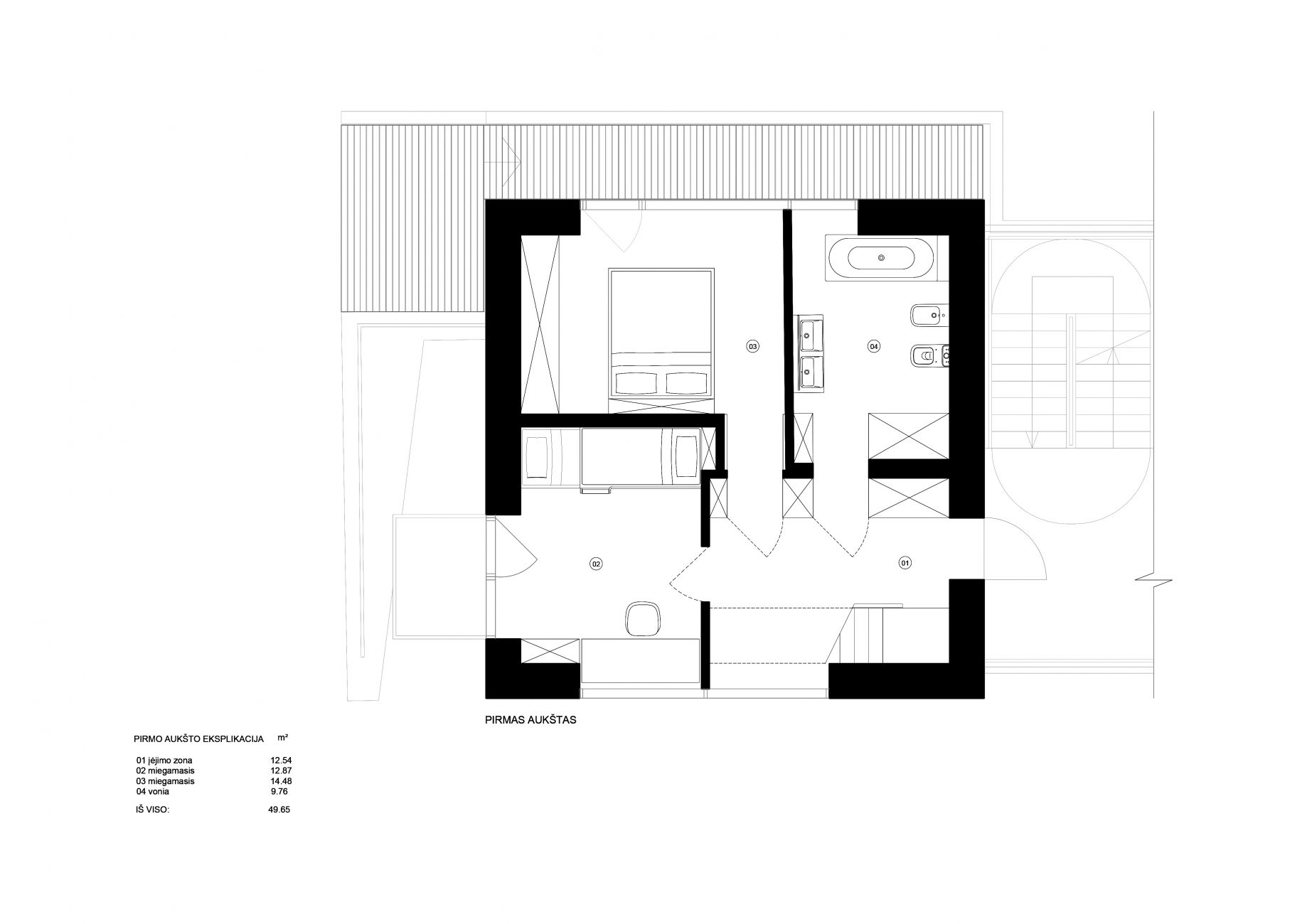RASU HOUSE
Project won Honourable mention in Häuser awards.
As if hanging over the historical walls of the ammunition depots, the house is part of the Rasų Quarter located in Pavilniai Regional Park. Here the houses of the archetype traditional silhouette harmoniously merge with the environment. The large showcase windows overlook slopes and valleys of the regional park, filling the interior with gorgeous landscapes.
It is this landscape that shaped the interior concept supporting the quarter's architectural idea to merge with the environment, to create an unbroken link between the exterior and interior, and maybe to allow nature’s certain domination over architecture. In that way it was thought to create an interior following the conceived architectural forms. The interior elements are only meant to bring forth and emphasize the existing proportions of the house, which are especially distinctive on the first floor.
This two-storey, 96 sq.m house is intended for a young four-person family, its compactness reminding us of the Japanese arrangement of spaces. Therefore, in solving the functional structure of these houses maximum space is given to storage, and utilitarian solutions are aestheticized through minimalist design and materiality. This is why it is sometimes not easy to tell whether you it is a door to another room or closet or it is just a wall finish.
The ground floor has bedrooms and a bathroom. The first floor is given to a living room with kitchen. The kitchen element is designed as a separate, lower volume with a ‘roof’ for cosy sitting, reading books and children's games. This volume alludes to a large stove found in fairy tale forest huts. As the children are still too small, for safety reasons there is no ladder.
The outer shell of the interior spaces is white from floor to ceiling so as to frame the environment. Most of solid and decorative elements of the furniture are constructed from CLT pine panels. In this interior natural wood is not a random choice. This is continuity. The concrete structures of the house are painted white so as to preserve the concrete texture. This is tactility.
Project type: Interior
Status: Built
Area: 96 m²
Year: 2018
Location: Vilnius, Lithuania
Team: Laura Malcaitė, Dmitrij Kudin, Karolina Jašinskaitė
Photographs: Darius Petrulaitis
Exterior photo: Norbert Tukaj
